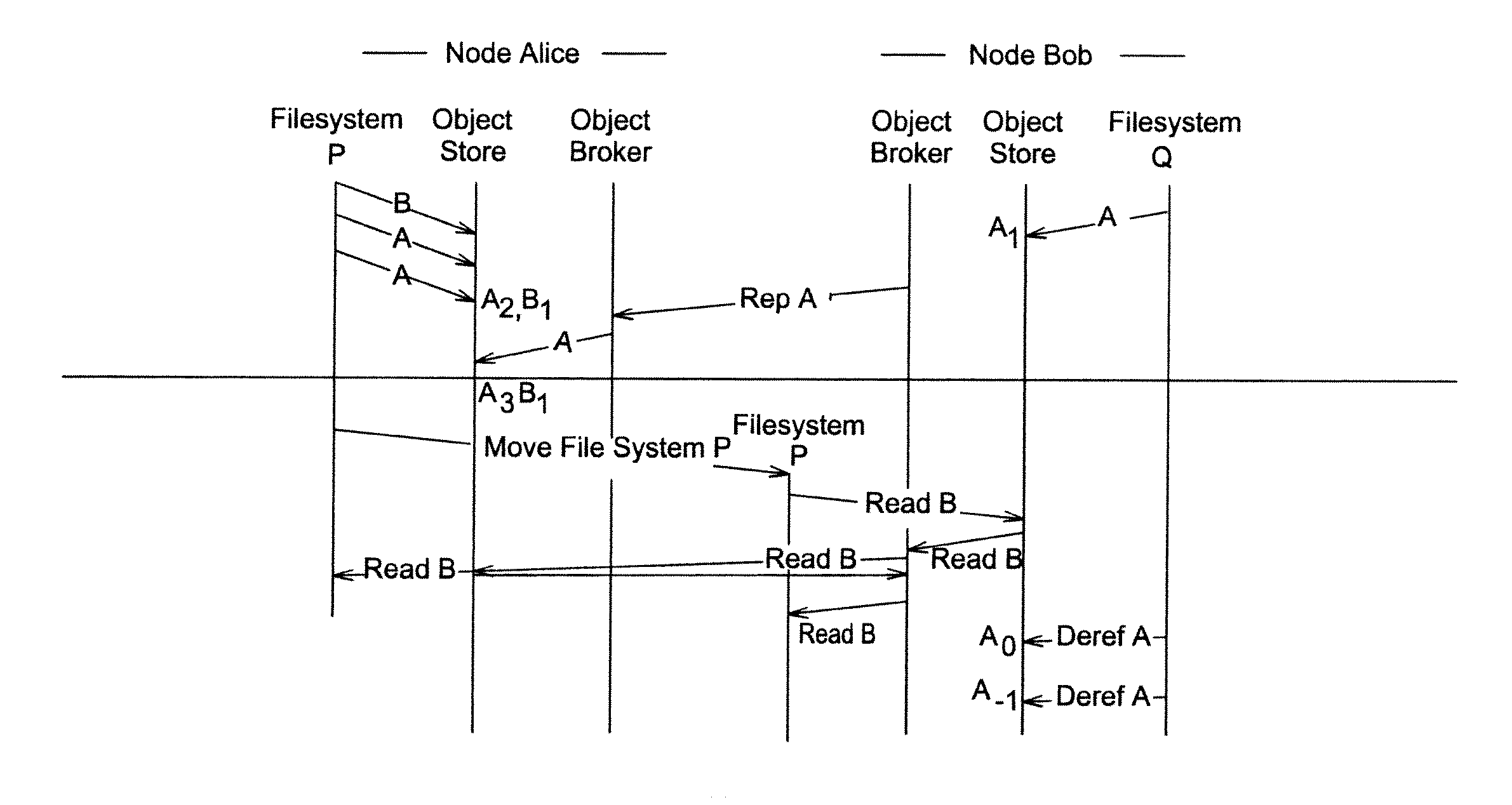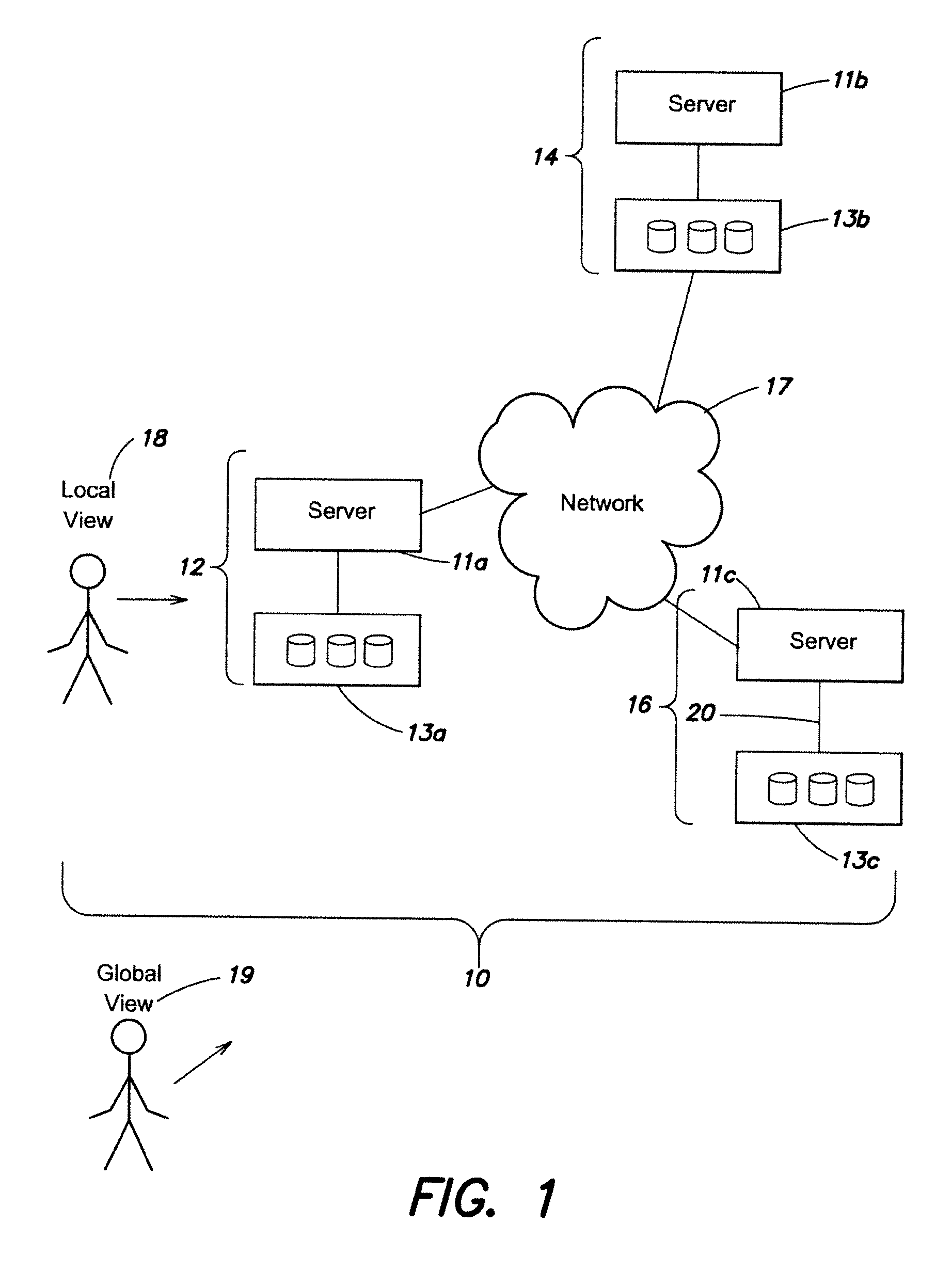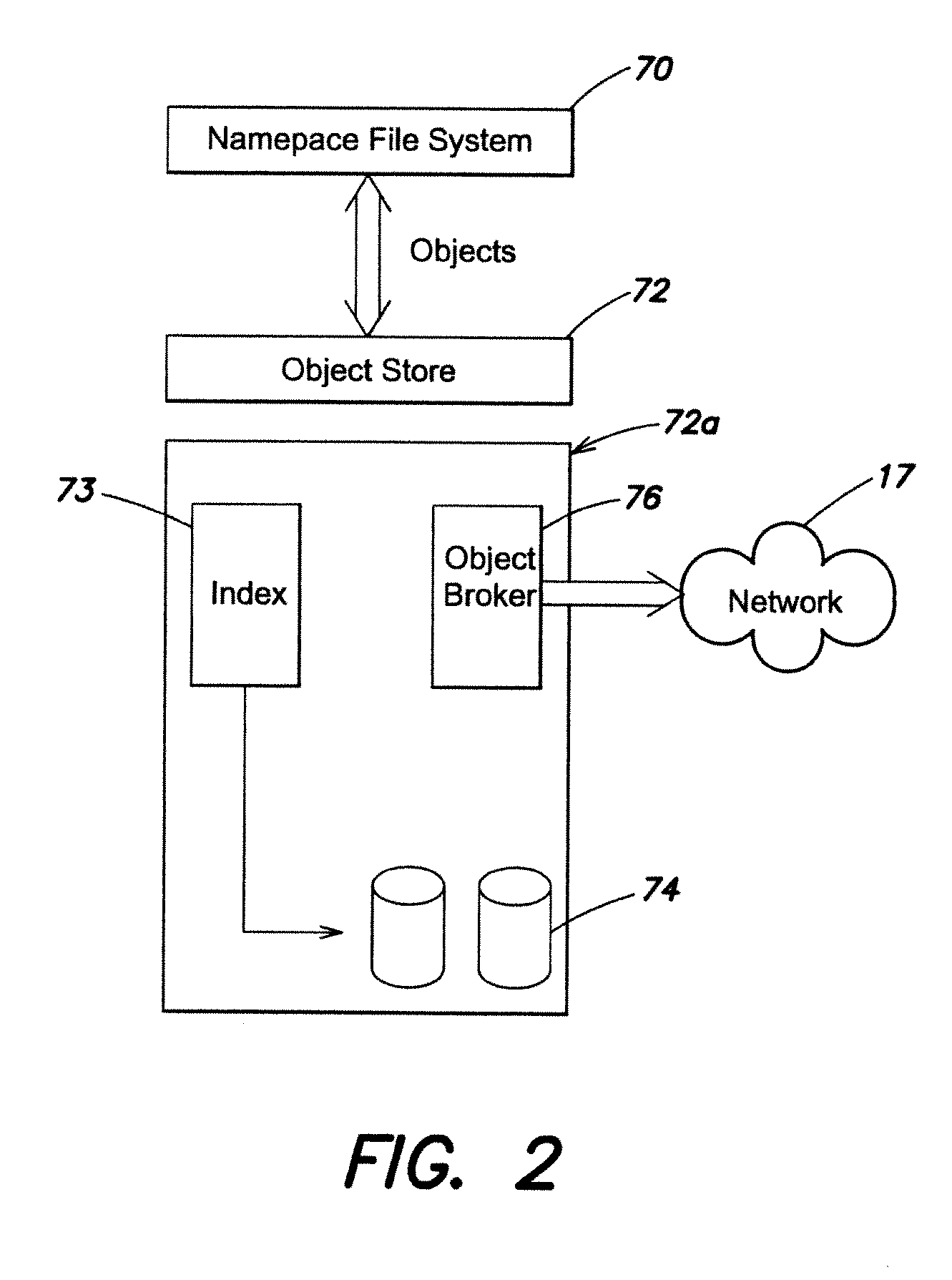Reference count propagation
a reference count and propagation technology, applied in the field of reference count propagation, can solve the problems of unacceptable network traffic and cpu costs, and achieve the effect of safe de-allocation
- Summary
- Abstract
- Description
- Claims
- Application Information
AI Technical Summary
Benefits of technology
Problems solved by technology
Method used
Image
Examples
Embodiment Construction
[0082]In one embodiment of the invention a data storage system is distributed across a plurality of nodes on a network, each node having its own local object store and the local object stores sharing objects. This group of networked nodes follows a universal naming convention, wherein each object stored on the network has a globally unique name across the network. In this embodiment the plurality of nodes operate as a peer-to-peer network, with no node being primary. There is no centralized naming authority; instead, local agents on each of the local nodes can independently determine and agree on the object name by utilizing a hash algorithm to determine the object's name, without requiring communication between the nodes. By using a strong hash algorithm collisions are avoided.
[0083]In this embodiment, the plurality of local object stores is intended to manage billions of objects, each object being small, e.g., 4, 8, 16, 32, 64, 128 or 256 KB (kilo bytes) in length. The objects in ...
PUM
 Login to View More
Login to View More Abstract
Description
Claims
Application Information
 Login to View More
Login to View More - R&D
- Intellectual Property
- Life Sciences
- Materials
- Tech Scout
- Unparalleled Data Quality
- Higher Quality Content
- 60% Fewer Hallucinations
Browse by: Latest US Patents, China's latest patents, Technical Efficacy Thesaurus, Application Domain, Technology Topic, Popular Technical Reports.
© 2025 PatSnap. All rights reserved.Legal|Privacy policy|Modern Slavery Act Transparency Statement|Sitemap|About US| Contact US: help@patsnap.com



